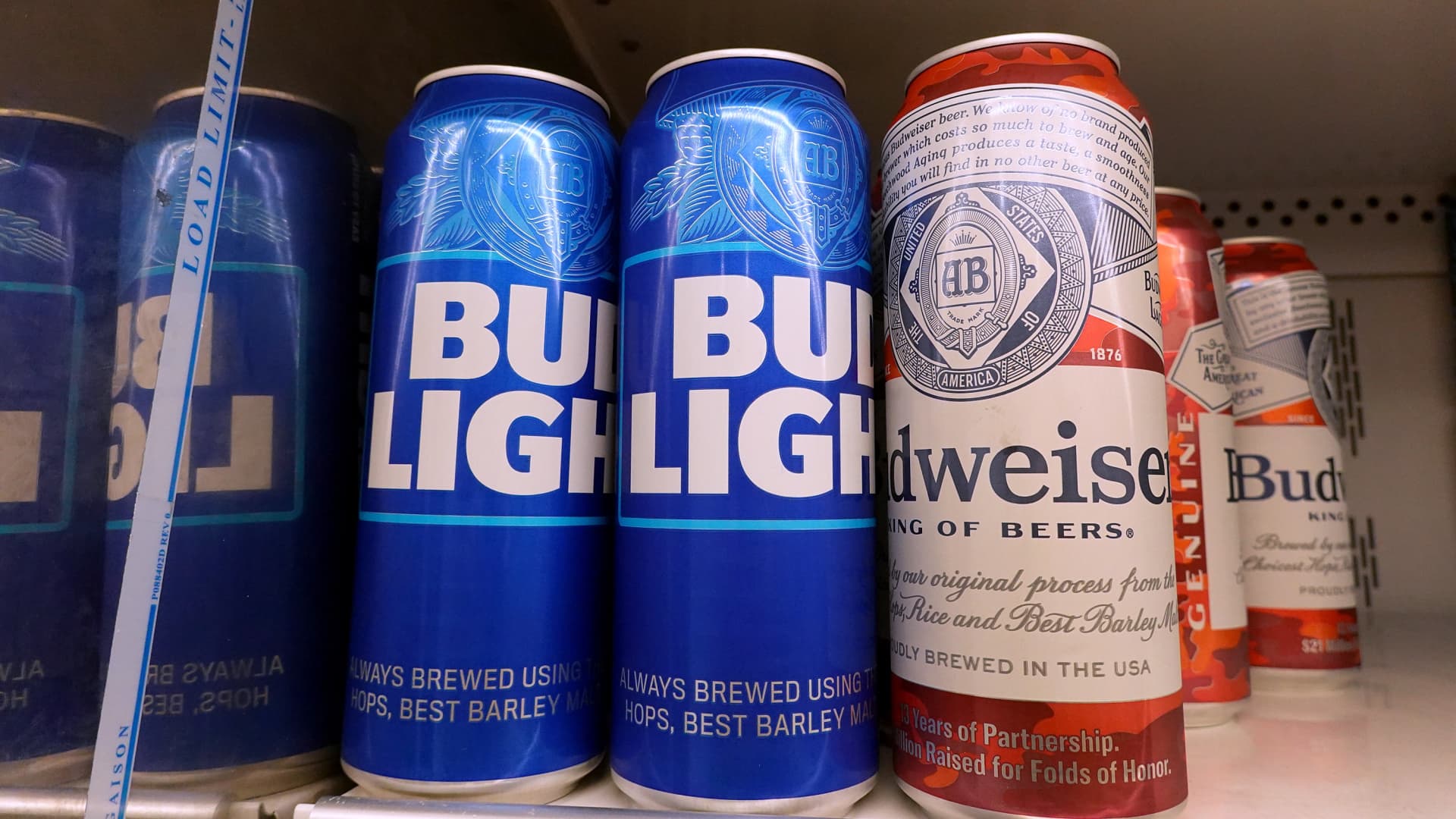Anheuser-Busch InBev, the world’s biggest brewing firm, on Tuesday beat expectations for the third quarter, despite an ongoing drag from controversy surrounding its online Bud Light campaign.
Revenue rose 5% over the period to $15.57 billion, ahead of a company-compiled forecast of 4.7%. That was despite volumes falling 3.4%, with growth in the Middle East, Africa and Asia-Pacific offset by a “soft” performance in Europe and weak U.S. sales.
The company’s Brussels-listed shares gained 3.5% in early trade as investors cheered the announcement of a $1 billion share buyback to be executed over the next 12 months. The company also announced it had approved a cash tender offer for up to $3 billion outstanding bonds as part of its “focus on deleveraging.”
However, Bud Light — which lost its spot as the top-selling U.S. beer over the summer amid a conservative-led boycott, protesting its partnership with transgender influencer Dylan Mulvaney — weighed on U.S. performance, the company said.
Revenue in the U.S. dropped 13.5%, while earnings before interest, taxes, depreciation, and amortization (EBITDA) in the country plunged 29.3% due to “market share performance,” along with productivity loss and higher marketing spend.
It marks the second quarter in which the Bud Light controversy, which includes criticism of the company for failing to support Mulvaney amid the backlash, has hit U.S. sales.
Analysts at RBC Europe said the company’s performance stood out within a “turbulent quarter” for earnings, noting beats on organic revenue growth and EDITDA growth expectations, despite a North America sales miss.
The reiteration of past guidance indicates an ability to offset issues in North America with momentum in other markets, the analysts said, while a steady overall beer market share suggests the company has been “somewhat protected by its mainstream presence.”
Brewers face a host of challenges currently, including higher input costs and growing pressure on consumer spending.
Danish brewing rival Carlsberg on Tuesday reported a 3% fall in volumes, but 5.8% revenue growth, roughly in line with expectations, as it warned consumer sentiment in Europe and Southeast Asia could dampen beer market sales.
Meanwhile Heineken, the world’s second-biggest brewer, saw volumes fall 4.2% year-on-year and revenue nudge up by 2% as it said sales had begun to be impacted by its higher prices.
